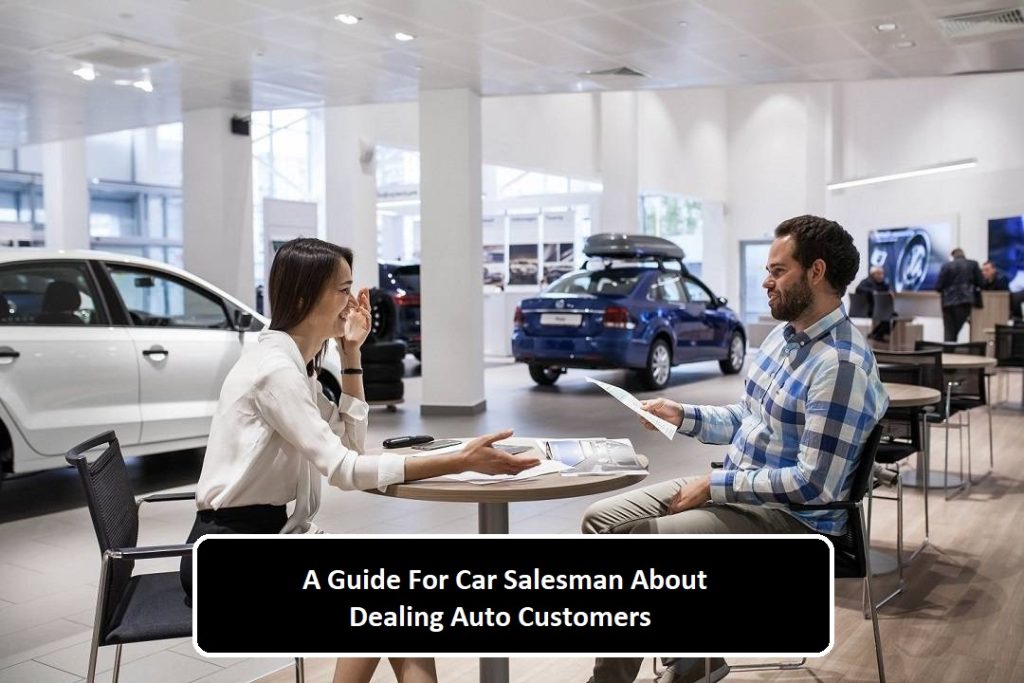Everyone who steps onto the lot is unique, so car salespeople must treat everyone equally. It’s difficult to predict who will take shortcuts during the process of selling and those who require special care. You can’t tell just by just looking at people.
The most reliable assumption you can make about a potential customer on first impression is that they’re likely to buy a vehicle and have a path to confidence. This is a very positive skill you can learn from an auto sales training program and It is your responsibility as the salesperson to help them navigate this process.
Let’s look at the path to trust from the perspective of a potential customer of a car dealership and how you can utilize the method to increase the trust of your customers and lead them to the possibility of making a purchase.
Getting To Know Your Customer
As I said, you don’t know from looking at a potential client what they want or desire in the selling process.
It’s impossible to tell if they’ve done extensive research on their issue (they want to buy an upgrade to their automobile) or are just there to satisfy a desire (they need to buy a brand new car). It would not let us off the selling obligation if you could do that.
The first responsibility of selling you must fulfill knowing more about your client. Today, most buyers come with a wealth of information about the product they already know.
Rather than rattling off car details, you must focus on learning about your customers. What are their preferences when it comes to buying?
The buying process differs for each person, but the steps to understand it may be similar for every customer. Some people are highly emotional when they study, such as my wife.
She’ll ask people who have driven the car she is interested in to determine whether they enjoy it. She’ll decide based on what appeals to her. That’s all it requires.
Others conduct the research using a rational perspective. They consider their daily commute and determine that an electric or hybrid model could be the best choice, and they study everything they can about hybrid vehicles.
Be aware that buyers are more knowledgeable than we do. They don’t require us to provide them with the information they already have. They need us to validate their instincts and assist them in closing the deal.
The best method to get to know your client is to recall the most recent time you were a client. Did you like anything about the experience? Are you pleasantly surprised, or did they provide exactly what you wanted?
Do you find yourself a car customer? When you next find yourself in the parking lot and see an up, place yourself in the buyer’s shoes. How would you like to be treated?
Ask your clients questions about where they’re from, what kind of research they’ve done previously and what they’d like to get from a deal. You’ll be able to understand their psychological and rational viewpoint, which will guide your following actions.
Every Customer Is Nervous About Spending Money
The customer’s burden is that they arrive at the dealership to purchase something. However, they’re hesitant about spending the cash. This is like having a buyer’s regret before the time comes.
If you determine your client’s emotional state at the beginning, you will know whether to inquire and when to pull back.
For example, in the case of my wife shopping for an automobile, the salesperson presented her with numerous options that stifled all the excitement and excitement she was feeling while causing her stress and anxiety.
People are here because they’re looking to purchase; however, it’s your responsibility to confirm their enthusiasm and demonstrate how great the vehicle is for them.
Use the knowledge you’ve gained about the buyers to show them they’ve made the best choice by coming to your lot on that particular day.
Make them feel you are concerned about their concerns and want to partner with them to come up with a solution that will benefit both of you. Keep yourself updated with core car sales training advanced skills.
Customers Are More Alike Than Different
It’s essential to be aware that, while everyone is different, their commonalities may be more significant. Every buyer will be drawn by something unique.
Each buyer will be driven by their unique level of inspiration and research. Each buyer will have doubts about whether they’ve made the right choice. And many concerns about how challenging the buying procedure will be.
They’re also nervous about investing their money. They’re there to purchase an automobile, and they all want to be confident in the salesperson they are dealing with.
